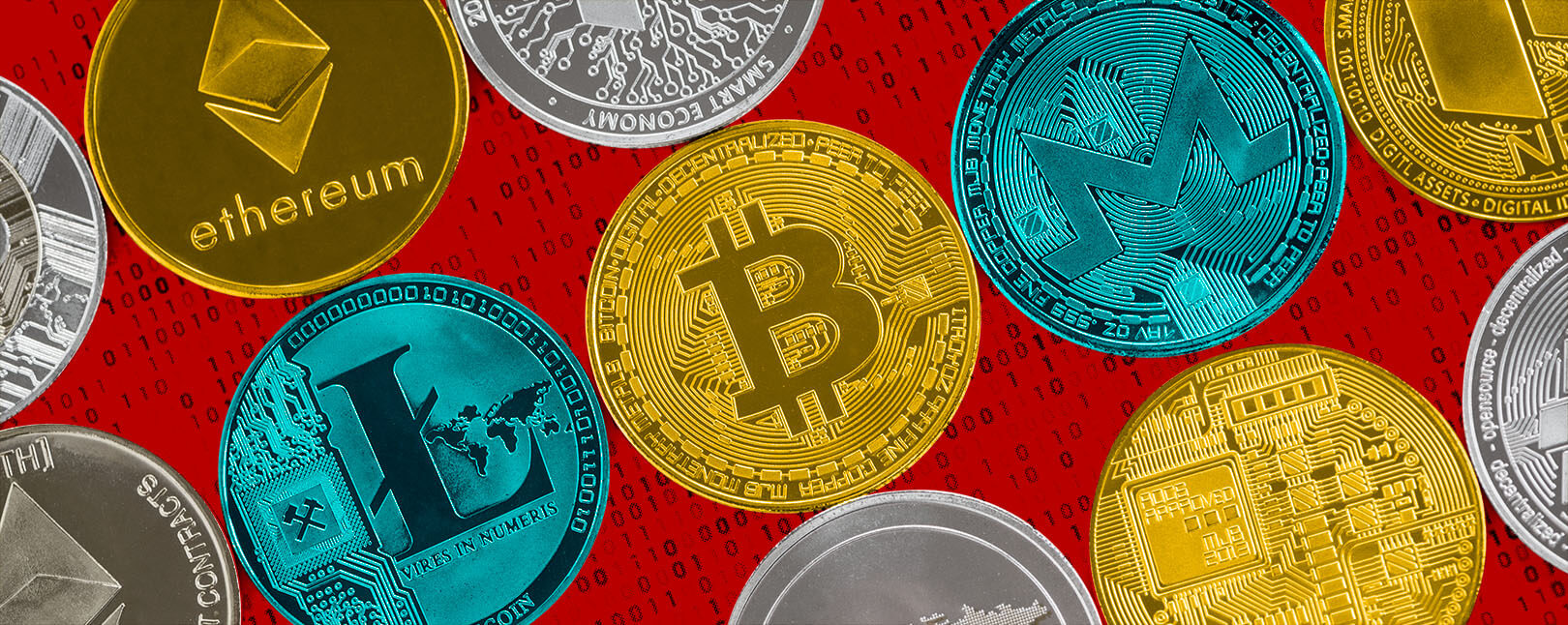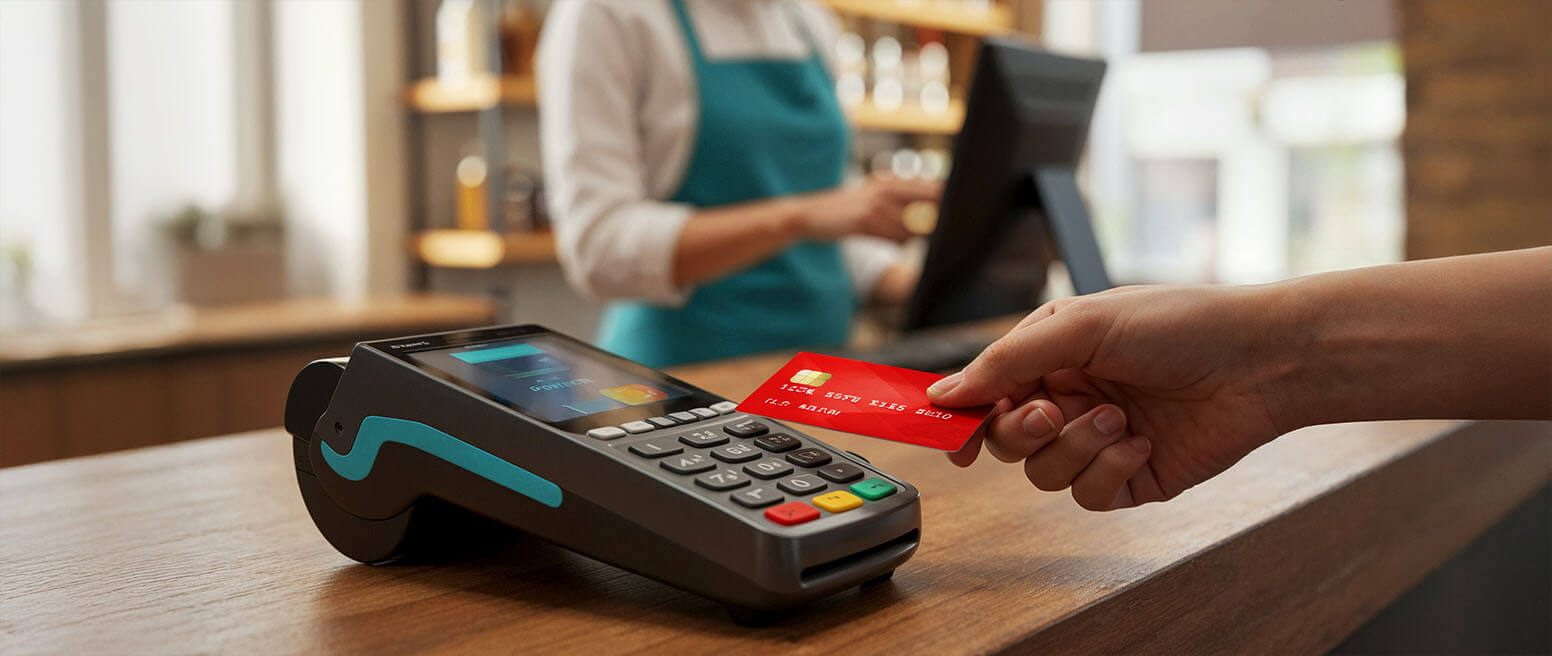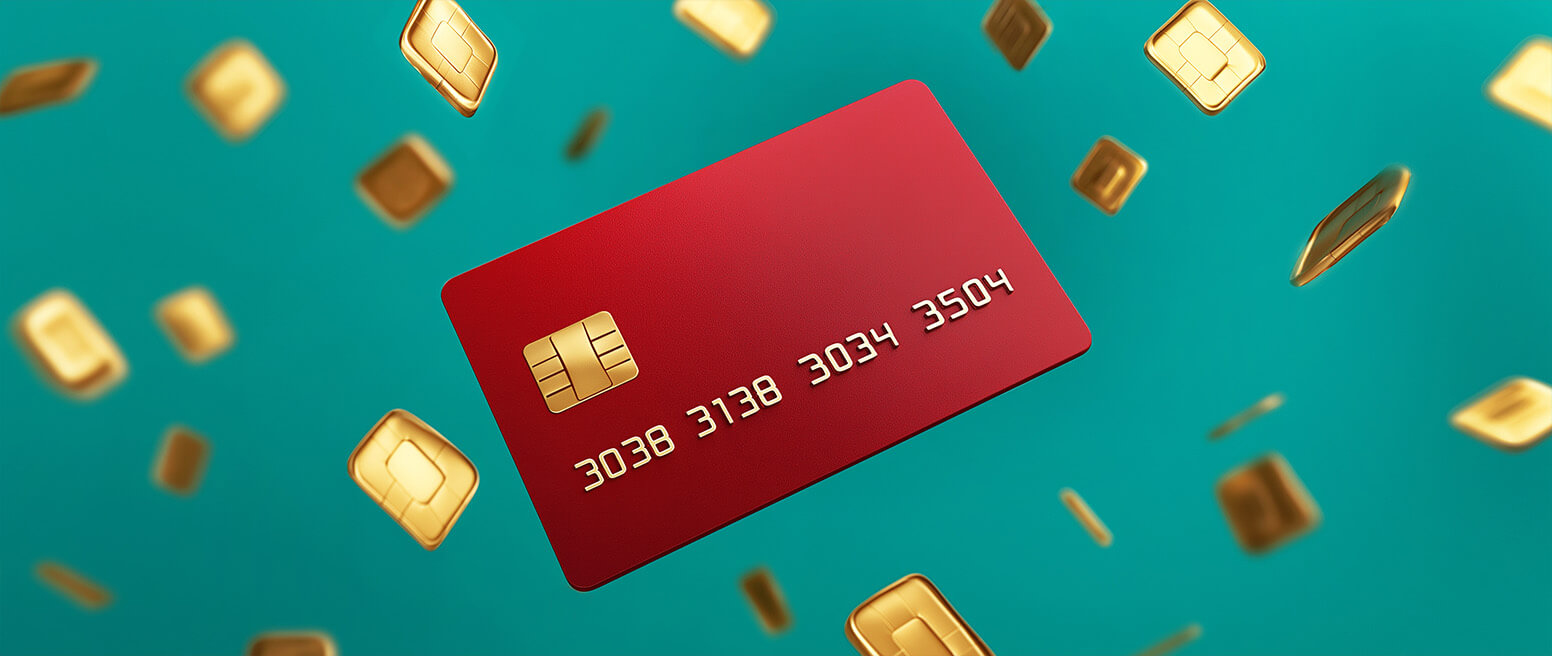A Look at Crypto Payment Processing: Should You Accept Crypto Payments… or Steer Clear?
If you’re reading this, odds are you already have some familiarity with cryptocurrency. You probably know what it is, at least in a broad sense, and how you can use it.
Trying to decide if you should incorporate crypto payments into your checkout process, however, is an entirely different question. There are a lot of variables and circumstances you’ll need to consider first.
With that being said, let’s briefly run down the basics of crypto payments. Then, we can dive into the pros and cons, and offer you some guidance as to how you can get started with crypto for business.
Recommended reading
- What is EMV Bypass Cloning? Are Chip Cards Still Secure?
- Dispute Apple Pay Transaction: How Does The Process Work?
- Terminal ID Number (TID): What is it? What Does it Do?
- Point of Sale Systems: How to Get More From Your POS Machine
- What is EMV Technology? Definition, Uses, Examples, & More
- Visa Installments: How it Works, Benefits, & Implementation
What is a Crypto Payment?
- Cryptocurrency
The term “cryptocurrency” refers to any digital currency designed to work as a medium of exchange through a computer network independent of any central authority, such as a central bank, to guarantee or manage it. A Crypto payment, therefore, is the use of a cryptocurrency to conduct a transaction between a buyer and a seller.
[noun]/krip • tō • kər • ən • sē/Most enthusiasts invest in cryptocurrencies as they would in other assets, like stocks or precious metals. However, cryptocoins can also be used to buy regular goods and services.
Accepting cryptocurrencies like Bitcoin as a form of payment has become more commonplace over the last decade. According to the 2022 Chargeback Field Report, 6% of eCommerce merchants reported that they now accept crypto payments; a 50% increase over 2021.
But, while cryptocurrency is a novel and exciting asset class, adopting crypto payments will require a fair bit of research. It’s wise to understand how the system works fully.
How Do Cryptocurrency Payments Work?
As you probably already know, cryptocurrencies are not tied to tangible coins or tokens. No physical “crypto coin” gets minted. Rather, these assets are stored as entries on an open-source data ledger called a blockchain.
Each blockchain contains all the transaction data ever made for that particular coin. Also, each ledger is secured by advanced encryption keys held via buyer and seller networks.
Crypto is popular with some consumers because it fosters a freer, less regulated marketplace for investment and commerce. In addition, some merchants are attracted by the promise of reduced liability for fraud and chargebacks.
In either case, crypto payments can be facilitated by merchants through various electronic payment gateways and/or crypto payment processors. If the option is available at checkout the consumer may elect to pay with crypto rather than a debit or credit card.
Let’s take Bitcoin, for example, as it’s the most widely-known and used cryptocurrency. The process for a bitcoin payment works like this:
“Pros” of Crypto Payment Acceptance for Merchants
Adopting cryptocurrency into your checkout process could provide an attractive payment alternative that many consumers will appreciate.
A great benefit to accepting crypto payments is that all transactions are relatively immediate. Traditional card payments could take days to process and deposit into a merchant’s account. In contrast, cryptocurrencies can be converted on an exchange platform directly after the transaction is completed. Funds typically hit your account within an hour of the purchase.
This is not the only reason to take crypto payments seriously, of course. Think about the implications for online fraud, for example; coins can’t be faked, which all but eliminates the possibility of certain fraud attacks. Also — and here’s a big one — cryptocurrencies are not subject to chargebacks.
Transactions made with cryptocurrencies are not subject to the requirements imposed on credit transactions under the The Fair Credit Billing Act. As such, they are not subject to the chargeback rules created in response to the law.
There are other benefits to consider, too, including:
- No PCI compliance requirements to stress about.
- Traffic from crypto enthusiasts happy to support a business with shared values.
- Coin value could increase substantially over time relative to the US Dollar and other reserve currencies.
“Cons” of Crypto Payment Acceptance for Merchants
That all sounds great, right? Well, not so fast. There are several problems with cryptocurrency that you should be aware of before you decide to accept crypto payments.
First, you have to remember that the last benefit we mentioned above could also be a big drawback. The value of a cryptocoin can rise dramatically in a short period of time. It can also fall just as dramatically in the same period.
In fact, crypto blockchains experienced quite a bit of turmoil in 2022. After reaching an incredibly high-value mark in 2021, major assets like Bitcoin and Ethereum have since seen dramatic drops in prices. These stumbles caused a chain reaction in other areas of the digital asset market, ultimately leading to the bankruptcy of several crypto platforms. There were also crashes that utterly decimated a few previously high-value currencies.
The most significant “con” is the lack of market stability. Without a method to regulate and ensure blockchain valuation, there can be no guarantee that the coins you accept and trade for goods will retain their values or remain comparable with the valuation of your product catalog or services.
- Exchanging crypto could cost more than it earns you.
- The market is extremely volatile and will continue to be until regulation is present.
- Possible implementation challenges, like tax preparation and managing customer returns.
Keep in mind what works for some businesses might not work for your business, and vice-versa. When considering alternative payment options, it’s a good idea to weigh these pros and cons against all other considerations. Make the decision that makes the most sense for your specific situation.
Should You Accept Crypto Payments?
Of course, this is the million-dollar question. But unfortunately, there isn’t a simple answer.
Accepting cryptocurrency as a payment option requires a lot of research, time investment, up-front funding, and general consumer demand to make it all worthwhile. Ask yourself: do you genuinely believe adding crypto payments will increase your revenue?
What products do you sell? What does your average customer look like? Have you tried any other alternative payment options?
These are all incredibly relevant questions that you should be able to answer before deciding on alternative payments. Some others questions to consider might include:
Top 3 Crypto Processors For Business
If you’re considering adding crypto payments to your checkout options, you wouldn’t be alone. Huge names in retail, like Amazon, AT&T, and Microsoft, accept crypto payments. Most larger companies invest where consumer demand drives them, and in this case, offering crypto payment options is quite popular with the public.
That said, it can be a hassle to try and conduct crypto transactions manually using the process we outlined above. At scale, it may not even be possible. In order to accept crypto payments, it’s probably best to go with a crypto payment processor you can trust.
Crypto transactions could be as simple as selecting a BNPL or funds transfer payment at checkout. Some could be more complex, like using a QR payment code. In any case, your processor will do most of the heavy lifting on your behalf.
Each crypto processor provides you with an applicable payment portal or gateway for checkout, monitors crypto transactions, and locks exchange rates to limit price volatility. According to our research, three of the most reliable crypto payment processors include:
BitPay
BitPay supports 13 cryptocurrencies and tokens. Its average fee per transaction is 1% of each transaction for most businesses.
Bitpay compares rates on multiple exchanges, uses the most competitive rate, and does not charge markup fees. Every exchange rate presented to a customer is guaranteed for 15 minutes.
Bitpay stabilizes crypto transaction values at the rate used for each transaction. This means the amount received, if converted to crypto, will retain its value as the amount paid, even if the exchange rate drops. If the merchant chooses to convert their coins to U.S. dollars, the amount received will be equal to the stated price in dollars, less the 1% fee.
Besides offering its own POS portal and app, BitPay has partnered with Verifone to include the BitPay payment option alongside credit card and other options for in-person payments. This simplifies the checkout process and makes it more familiar for customers.
Coinbase
Coinbase accepts 7 cryptocurrencies. Its average fee per transaction is 1%. With Coinbase, exchange rates lock as soon as a customer begins the checkout process, and merchants can adjust how long the exchange lock will remain in place.
Coinbase integrates with eCommerce portals via Shopify and WooCommerce. Additionally, Coinbase offers two account tiers. Pricing doesn’t change between account types, but there are differences in the level of hands-on control a user experiences:
Coinbase-Managed:
- Includes compliance reviews
- Possible implementation challenges, like tax preparation and managing customer returns.
- Transferring and converting funds are simplified.
- Coinbase automates user wallets and private keys
- Most cryptocurrency payments can automatically be converted to U.S. dollars or other currencies
- Set-up is fast and convenient
- Cryptocurrency payments deposit into user wallets for self-management
- To convert to U.S. dollars, you’ll need to create a Coinbase Exchange account, where you will transfer crypto and sell on the exchange.
PayPal
PayPal features a crypto payment component, but it is fully managed and maintained by PayPal.
Merchants don’t get a say in how the exchange operates, its valuation, or whether they would like their payment in crypto. Instead, PayPal offers crypto payments strictly to its customers. Once a crypto payment has been selected, PayPal will credit the merchant’s account in US dollars.
Also, PayPal charges pretty steep fees for crypto exchanges, but that aside, if you are already PayPal-enabled, your customers can pay you in crypto.
There are a few other companies that facilitate or accept crypto payments, like DePay, OpenNode, and Strike. Each company features a relatively similar list of options and transaction fees. Ultimately, our advice is to consider all the options, then pick whichever offers the range of benefits that will be most beneficial for your needs.
Need Other Answers to Contend With Fraud?
Are concerns about the rising cost of chargebacks and fraud your main reason for accepting crypto payments? If so, asking an expert for help could make all the difference between a fruitful or wasted investment.
As a leader in the payments landscape for the past ten years, Chargebacks911® is uniquely placed to help merchants achieve independence from fraud and chargebacks altogether. Call us for your free ROI analysis today.
FAQs
What are crypto payments?
The term “cryptocurrency” refers to any digital currency designed to work as a medium of exchange through a computer network independent of any central authority, such as a central bank, to guarantee or manage it. A Crypto payment, therefore, is the use of a cryptocurrency to conduct a transaction between a buyer and a seller.
Is it safe to accept cryptocurrency payments?
The answer is both “yes” and “no.” Coins cannot be faked, which all but eliminates transactional fraud. Combine that with a lack of disputes and chargebacks, and it’s not hard to imagine why crypto is an attractive prospect for merchants. At the same time, price volatility could be a serious obstacle.
Why accept crypto payments?
Adopting cryptocurrency into your checkout process could provide an attractive payment alternative that many consumers will appreciate. The best part of accepting crypto payments is that all transactions are relatively immediate. Where traditional card payments could take days to process and deposit into a merchant’s account, cryptocurrencies can be converted on an exchange platform directly after the transaction is completed.
Can I convert my cryptocurrency sales into my local currency?
Yes. The exact process depends on the crypto payment processor you select, and the region and laws governing your business. However, you should be able to convert your sales into your local currency if you wish to do so.
How long does it take before I receive funds in my account?
Most transactions are instant, meaning that once the merchant selects the form of payment they prefer, the funds should appear in their digital wallet. However, this feature is not uniform between crypto processors, and some lag may vary.















